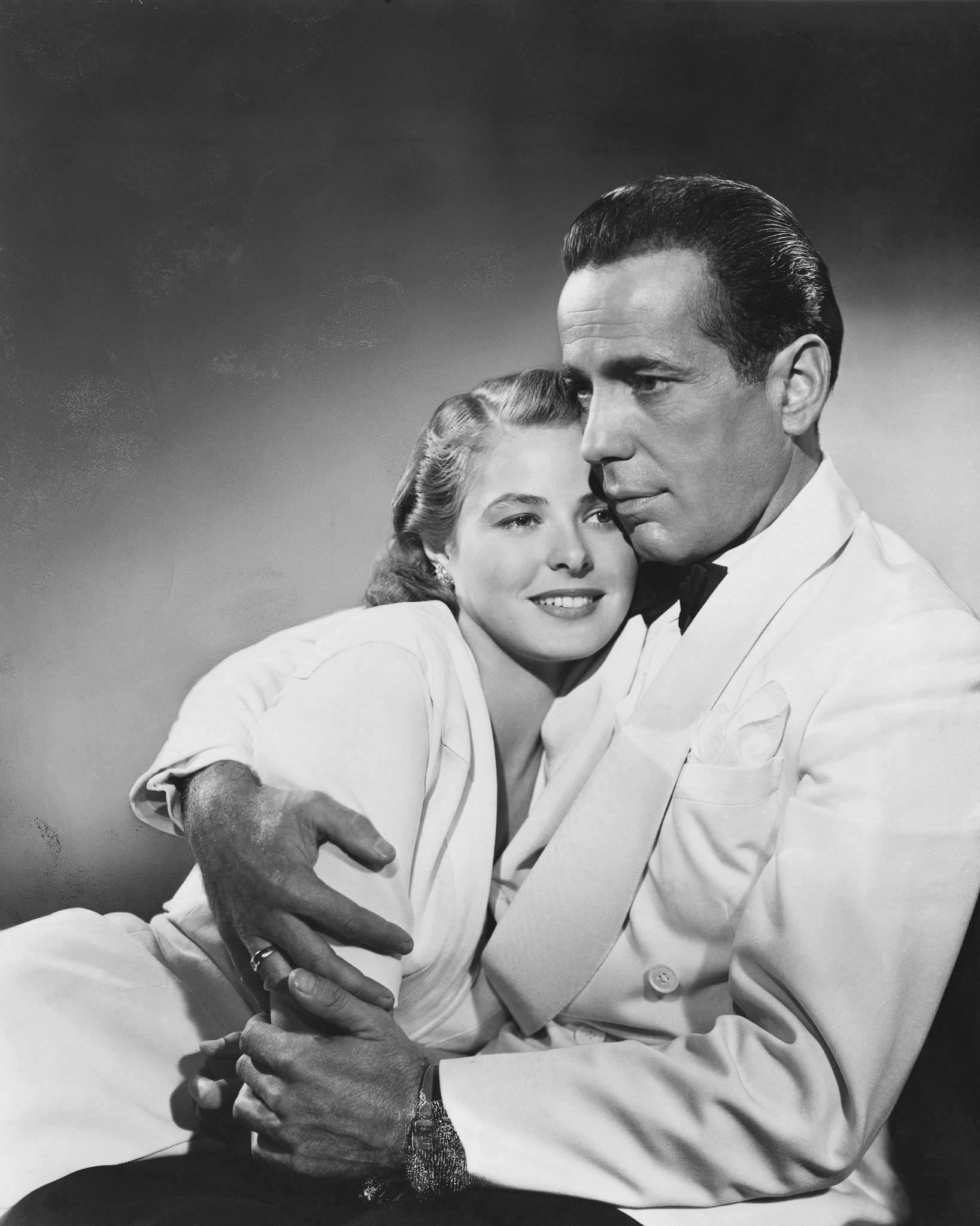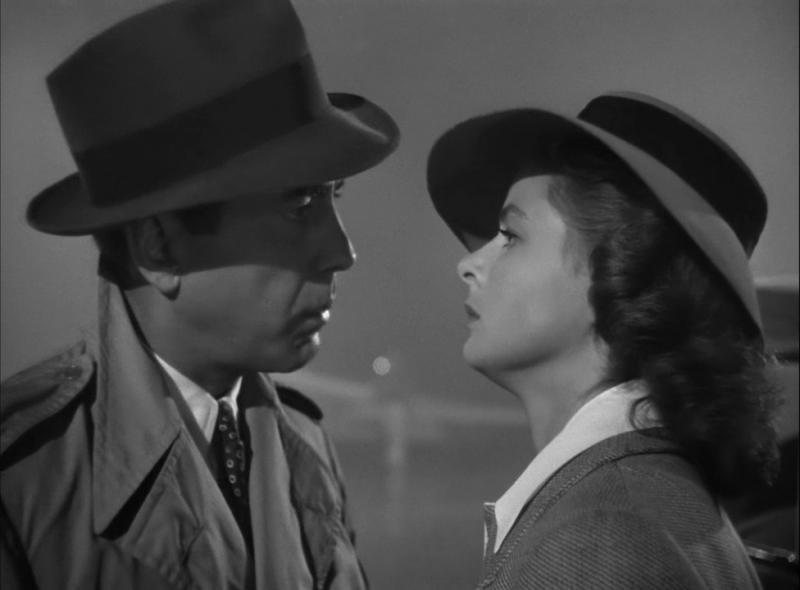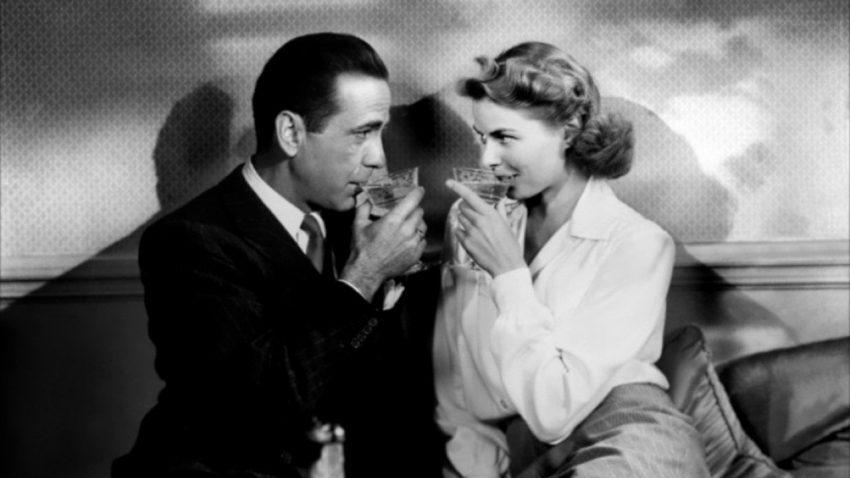Casablanca is a 1942 American romantic drama film.
In the event that we recognize emphatically the characters in certain motion pictures, it is no secret that “Casablanca” is perhaps the most well-known film made. It is about a man and a lady who are enamored, and who penance love for a higher reason. This is gigantically engaging; the watcher isn’t simply ready to envision winning over Humphrey Bogart or Ingrid Bergman, yet unselfishly repudiating it, as a commitment to the incredible reason for overcoming the Nazis.

Nobody makes “Casablanca,” thought they were making an incredible film. It was basically another Warner Bros. discharge. It was “A rundown” picture, certainly (Bogart, Bergman, and Paul Henreid were stars, and no greater cast of supporting entertainers might have been gathered on the Warners parcel than Peter Lorre, Sidney Greenstreet, Claude Rains, and Dooley Wilson). Yet, it was made on a strict financial plan and delivered with few assumptions. Everybody associated with the film had been and would be, in many different movies made under comparable conditions, and the significance of “Casablanca” was to a great extent the aftereffect of cheerful possibility.
The screenplay was adjusted from a play of no extraordinary outcome; journals recount pieces of discourse written down and surged over to the set. What probably helped is that the characters were solidly settled in the personalities of the essayists, and they were characters so near the screen personas of the entertainers that it was difficult to compose exchange in some unacceptable tone.
Humphrey Bogart played solid courageous leads in his vocation, however, he was normally better as the frustrated, injured, angry legend. Recall him in “The Treasure of the Sierra Madre,” persuaded the others were plotting to take his gold. In “Casablanca,” he plays Rick Blaine, the hard-drinking American running a club in Casablanca when Morocco was a junction for spies, tricksters, Nazis, and the French Resistance.
The initial scenes hit the dance floor with a parody; the exchange joins the pessimistic with the tired; jokes with sayings. We see that Rick moves effectively in a bad world. “What is your ethnicity?” the German Strasser asks him, and he answers, “I’m a boozer.” His own code: “I stand up for no one.
Then, at that point “of all the gin joints in every one of the towns in all the world, she strolls into mine.” It is Ilsa Lund (Bergman), the lady Rick adored years sooner in Paris. Under the shadow of the German occupation, he organized their departure and accepts she deserted him- – left him holding up in the downpour at a train station with their passes to opportunity. Presently she is with Victor Laszlo (Henreid), an amazing legend of the French Resistance.
This is taken care of with extraordinary economy in a modest bunch of shots that still, after numerous viewings, have the ability to move me genuinely as a couple of scenes at any point have. The bar’s piano player, Sam (Wilson), a companion of theirs in Paris, is frightened to see her. She requests that he play the melody that she and Rick made their own, “As Time Goes By.” He is hesitant, however, he does, and Rick comes stepping furiously out of the backroom (“I thought I told you never to play that song!”). Then he sees Ilsa, an emotional melodic harmony denotes their closeups, and the scene works out in disdain, lament, and the memory of an affection that was genuine. (This scene isn’t as solid on a first seeing as on resulting viewings, in light of the fact that whenever you first see the film you don’t yet know the narrative of Rick and Ilsa in Paris; to be sure, the more you see it the more the entire film acquires reverberation.)

In her closeups during this scene, Bergman’s face reflects confounding feelings. What’s more, well she could have been befuddled, since neither she nor any other individual on the film knew without a doubt until the last day who might get on the plane. Bergman played the entire film without knowing how it would end, and this had the inconspicuous impact of making every last bit of her scenes all the more genuinely persuading; she was unable to shift toward the path she realized the breeze was blowing.
Elaborately, the film isn’t such a lot splendid as totally sound, unshakable in its utilization of Hollywood studio craftsmanship. The chief, Michael Curtiz, and the essayists (Julius J. Epstein, Philip G. Epstein, and Howard Koch) every single won Oscar. One of their key commitments was to show us that Rick, Ilsa, and the others resided in a mind-boggling overall setting. The extravagance of the supporting characters (Greenstreet as the bad club proprietor, Lorre as the whimpering cheat, Rains as the quietly gay police boss, and minor characters like the little kid who will successfully help her significant other) set the ethical stage for the choices of the significant characters.
Interested in this film, you can see more related other products Casablanca Movie here!




